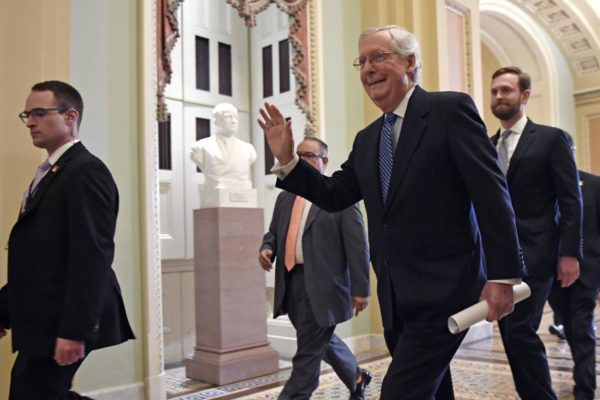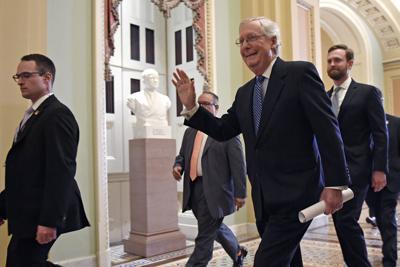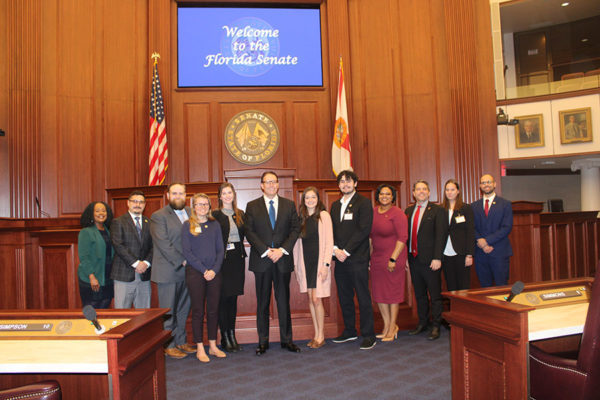EDITORIAL: Dark money gives U.S. politics a bleak future

Senate Majority Leader Mitch McConnell, R-Ky., holds enormous power over Republican in the U.S. Senate because of the influence of dark money.
SUSAN WALSH, ASSOCIATED PRESS
We admit it was an eye-opener for us.
Sen. Sheldon Whitehouse, the Democratic senator from Rhode Island, was on television explaining the stranglehold that Majority Leader Mitch McConnell held on his fellow Republican senators during the impeachment trial.
It was not blind loyalty.
It was not the fear of a cutting tweet from the president.
Whitehouse referred to it as a “spigot” that McConnell could turn on or off to ensure his fellow Republicans fell in line.
The founding fathers did not imagine “dark money” and we fear that most citizens don’t realize the impact it has, not only on our elections, but what legislation gets passed in Congress.
The proliferation of dark money goes back to the Supreme Court’s 2010 decision that equated corporate political donations with free speech. Whitehouse described a process where six to 10 Republican-leaning fundraising groups would follow recommendations from the majority leader on how to spend millions of dark dollars to influence voters.
It gave the majority leader an enormous amount of control over Republican members of the Senate. Vote the wrong way and a torrent of negative ads could flow from the spigot and end the career of a U.S. senator.
Perhaps, it shouldn’t come as a surprise that the country with the greatest economy in the world would eventually make elected office another product that could be bought and sold.
Most of you understand there are limits to how much money individual donors can make directly to campaigns, political parties or a super PAC, and the individual making those contributions must be identified. It’s supposed to limit the power of any one individual over elections.
Dark money is different. It comes from limited liability corporations (LLCs) or politically active nonprofits that do not have to disclose their donors because of the Supreme Court decision. They are also not affiliated with individual campaigns. That often gives candidates cover from offensive attack ads.
These groups can receive unlimited amounts of money, sometimes millions of dollars, from individuals and corporations, to put out a message without ever revealing how much was donated or where it came from. Individuals and corporations now have enormous influence over candidates and elections without revealing their motives.
And let’s be clear, dark money is being used to support both Republican and Democratic candidates. Each year the political arms race gets more expensive.
We’ve already seen dark money at work in the 21st Congressional District.
Just recently, we saw an ad on local television that targeted the Republican Party. We assume it was an effort to influence the congressional election in the 21st Congressional District, but the ad was not associated with Tedra Cobb’s campaign.
Consider that from 2000 through 2016, House of Representatives candidates who spent the most money during an election won more than 90 percent of the time. The money buys the medium to deliver the message that wins an election.
So when Sen. Kirsten Gillibrand sat down with The Post-Star editorial board in September, 2018, we suspected we would hear more about her successes in bringing attention to the problem of sexual assaults in the military and on college campuses as she considered a presidential run in 2020.
Instead, she wanted to talk about campaign finance reform.
About getting the money out of politics.
About limiting its effect on the voters.
“It’s about plain old greed,” Gillibrand said at the time. “It’s a lack of empathy caused by spending too much time with the 1 percent.”
Gillibrand floated a plan similar to one used in New York City. For every donation up to $175 by individuals, city government matched it at a ratio of 6 to 1, or $1,050.
Gillibrand said her ambitious plan would start with passing tougher finance disclosure laws because voters do not know who is responsible for pouring millions of dollars into attack ads.
But passing those laws would take power out of the hands of leaders like McConnell, and give U.S. senators their independence to do the right thing. We suspect any attempt to reform the system would be met with a tsunami of negative ads against the politician who proposes it.
Are you seeing where we are coming from?
If we learned anything from the U.S. Senate votes this past week, it is how it was influenced by money in politics.
After Gillibrand announced she was running for president last year, she proposed a public campaign financing plan similar to what she talked about with us.
What you may also recall from the Democratic debates was the failure to make campaign finance reform an issue at all – it still isn’t—and Gillibrand failed to make it to 2020.
It’s the true key to fixing our dysfunctional political system.
So as we embark on another presidential campaign, you should remember that elected officials are driven first and foremost by how the money from the spigot is spent. It can help them or hurt them. It just depends on whether they play ball.
It’s the most important issue facing the country and one we continue to overlook.
Post-Star editorials represent the opinion of The Post-Star’s editorial board, which consists of Publisher Brian Corcoran, Editor Ken Tingley, Projects Editor Will Doolittle and citizen representative Chuck Cumming.
Post-Star editorials represent the opinion of The Post-Star’s editorial board, which consists of Publisher Brian Corcoran, Editor Ken Tingley, Projects Editor Will Doolittle and citizen representative Chuck Cumming.








